Marco Polo has been in the game for a long time now. Working with some of his favorite heavy hitters including Rakim, Masta Ace, Big Daddy Kane, Inspectah Deck, MC Eiht, Talib Kweli, Large Professor and many more, Polo has been able to make noise while still remaining independent. However, he says that his focus moving forward is to make his music heard everywhere on a broader scope.
“I’m going to focus more on not just independent stuff, but getting my music all over the place in terms of major label projects or licensing,” he tells in this exclusive HipHopDX conversation. “So maybe I’m going to test the waters and just try to expand the Marco Polo name onto bigger projects, because I think my music and my beats can be wherever. It’s not just an underground thing.”
Having released his album PA 2: The Director’s Cut in November, Marco Polo explains his creative process in sampling himself and how to “maintain the sound of the dust and the grime and the crackle that you get from vinyl and recordings.” Polo also schools us on the evolution of Hip Hop production and how it seems to have made a full circle back to 808 drum beats that dominate the airways today. Pull up your chairs, take a seat, and pay attention because class is in session.
Marco Polo Explains The Theme Behind “PA 2: The Director’s Cut”
HipHopDX: The commentary from Michael Rappaport tied in with the lyrics and your production helps give the album a movie feel. How did you succeed in creating visuals through your beats to make this project come alive?
Marco Polo: Me and my boy Shylow—who lives in Toronto and does a lot of work with me on my albums—conceptually called it The Director’s Cut just because it was long. It was 18 songs, and we know in 2013 people’s attention spans are almost non existent with the good old “interweb,” how fast people get music and how disposable and quickly things fade out. So we wanted to tie it all together. And really late in the game, like when the album was finished, Michael Rappaport started following me on Twitter. I’ve known him for a while through Masta Ace, so I just kind of blindly sent him a message on Twitter; God bless Twitter. I hate it and I love it at the same time, but I just hit him up like, “Hey man would you be down to do some skits for my album?” I wasn’t expecting him to even respond, and he hit me back right away like, “Whatever you need me to do.” So me and Shylow wrote a little bit of a script or a general idea to have it all flow, so that he was just like a fan of Hip Hop talking in between songs. He did the intro and the intermission, and it really was the icing on the cake that tied everything together.
That’s the way that the album is supposed to be taken in. Any artist that makes an album obviously wants people to listen top to bottom to hear the vision. So for those that take that route and actually listen to something top to bottom, I’m hoping that they get that same vibe.
DX: Definitely and you’ve been fortunate enough to have the liberty to do whatever you want on your project. What creative experiments would you like to try for your next project or in the future?
Marco Polo: I’m used to producing my own albums, working on my brand and me as a producer. That’s what I’ve done my entire career, so I think moving forward I’ll continue to do that. But I think before I get into another album, I’m going to focus more on getting my music all over the place in terms of major label projects or licensing. A lot of people don’t know I did the theme song for the Brooklyn Nets that played last season and this season. Opportunities like that are really different, and of course a bit more financially rewarding than underground Rap. I just want to test the waters in new places. I’ve never really focused on sending beats to major labels just because it’s a different process. When I’m doing my own albums, I can be in the studio with people and be really creative on the spot. When you’re shopping beats to people over e-mail and stuff, that element is kind of not there—you’re just kind of sending tracks. So maybe I’m going to test the waters and just try to expand the Marco Polo name onto bigger projects, because I think my music and my beats can be wherever. It’s not just an underground thing.
DX: Sounds like there’s no shortage of music if that’s the route you choose to go. Between both “Newport Authority” projects and both Port Authority albums, you must have had a ton of content.
Marco Polo: Yeah, it was a lot. I mean I’ve been on Port Authority 2 for almost four or five years, so there was tons of stuff. I had tracks with Rakim and Big Daddy Kane, and of course I wanted the world to hear that. Those are icons and legends that I grew up listening to.
DX: Judging from the track “G.U.R.U.” it’s safe to say Gang Starr is on that list of icons too…
Marco Polo: Absolutely. Yeah, I made that beat the day Guru passed, so without getting all corny… But you know, a lot of things were obviously going on through my mind when I was making the beat. They were a huge influence on me. So yeah, I guess I sat down, and once I got that news, I just channeled whatever energy was happening, and that beat manifested itself that day.
Marco Polo Recalls Toronto Days & Instant Messaging With Drake
DX: True. Like Guru, you moved to NYC to pursue your music career. What convinced you that you needed to move, and how do you think your career would have been if you stayed home?
Marco Polo: It would have been much different. I moved to New York 10 years ago, and the scene in Toronto is much different than it is now. The microscope on Toronto is definitely there now because of artists like Drake and just what he’s done. But he was nonexistent at the time I moved to New York, so I just wanted people to listen to my music. I didn’t want where I was from or any other factor to be an issue with me progressing, so I kind of just moved to New York to be closer to the artists I wanted to work with. In Toronto, your only opportunities of seeing artists that you want to work with is if you go up to a show, bum rush them and give them a CD. I didn’t want to take that approach; I wanted to be working in the studio in New York with all the people that I wanted to work with, and that’s exactly what I did. I came to New York and got a job at the Cutting Room—which is a really dope studio—and that kind of sprung itself into me working with a lot of people that I wanted to work with.
DX: Who have you not yet worked with, either legend or new jack, that you would like to work with in the future? Are there any possibilities of you working with Drake?
Marco Polo: I haven’t worked on anything with Drake. I used to talk to Drake like eons ago—way before I had some friends connect me with him—and we had literally a couple conversations over MSN Messenger…that’s how long ago it was. I sent him some beats, and we were talking for a few, but nothing really ever happened. So yeah, moving forward I would definitely love to get his camp or him some production, and that’s definitely one of my goals. But besides that, I have definitely worked with Toronto artists. I’ve worked with Rich Kidd, and my boy Shylow has an album coming out soon with his group called First Division. It has production by DJ Premier, Jake One and Kev Brown, so I’m always definitely working with cats out in Toronto.
I would love to work with Ghostface or Slick Rick. I would love to work with Kendrick… that whole crew and Action Bronson. There’s definitely a bunch of people that I would like to work with that I think my beats would compliment their style.
Why Talib Kweli Co-Signed Marco Polo’s “Push Thru” Remix
DX: This is kind of random, but what were you like in high school?
Marco Polo: Actually to be honest, I was wild in high school. I had to leave in the middle of high school to go to drug rehab [laughs].
DX: Oh my goodness [laughs]!
Marco Polo: Sorry to drop that bomb on you, but in the middle of high school I ended up leaving because I was a trouble child. I was wilding, doing crazy things and I had to leave. So I guess I was kind of crazy in high school, and then I came back after a year, and my life was definitely more settled. I’ve actually been clean and sober for like 19 years. I’m just turning 34, so pretty much by the time I turned 16 or 17, I had stopped doing alcohol and drugs. So high school was a bit of a write off for me.
DX: That’s interesting.
Marco Polo: [Laughs] Yeah, you probably weren’t expecting that.
DX: [Laughs] Nope. But you mentioned Rakim and Kane as heroes, so it was more to get a beat on your tastes then versus the current state of Hip Hop.
Marco Polo: I mean if you just listen to the radio now, they definitely just want to play things that pay the bills and help them generate ad money from companies. I guess until we as the listeners, the people or the consumer really take a stance, that’s probably not going to change. How do I feel about it? I would just prefer that there was more of a balance. I’m not hating on anything on the radio, but I just feel like it doesn’t represent everything that’s out there. There’s so much Hip Hop that’s coming out that’s so amazing, whether it’s independent or major. My whole thing is there’s always room for everything. For every De La Soul or A Tribe Called Quest song back in the day, you still had something like the Vanilla Ice, MC Hammer or Milli Vanilli—something really pop. But all of it had a place. All of it got a chance to live on the radio, so it’d just be cool for it to go back to that.
Marco Polo On The Evolution Of 808 Drum Sounds In Hip Hop
DX: Definitely. Every region was popping, and they had their own thing going on.
Marco Polo: Absolutely. Every area in the U.S. had their own identity. You knew a New York track, a West Coast track, a track from Atlanta, so it’s kind of hard to… Even living in New York—I’ve been there for 12 years now—and it’s changed so much. Sometimes you have a hard time listening to the radio and figuring out what’s a New York record and what’s a Southern record. It’d be nice to hear some more New York stuff come back.
DX: Yeah, have you listened to cats like Pro Era or Astro, like the young people? What do you think of them?
Marco Polo: Absolutely. Joey Bada$$ and all of them are definitely doing a great job of… The younger audience is taking that approach of the sampled beats and that type of energy, and I think that is very positive.
DX: And like you were saying before, it seems like we’re stuck in this era of “trap music” where beats sound really similar with that same knock or that same drum. Why do you think that is?
Marco Polo: [Laughs] I mean, here’s the thing when it comes to that 808 drum sounds and that whole… When Hip Hop first started, we were limited equipment-wise, so a lot of drum machines that producers were buying had these stock sounds—the 808s and the 909s. They used it because they had to use it and because the gear to accommodate sampling wasn’t really available. As Hip Hop production evolved, more people had access to buying samplers, and that’s how it switched from the 808s and started going to people sampling breaks, because that type of equipment became more available. And now it seems to be going back to the 808s sound, so that’s always been there in Hip Hop.
I’m not saying that you’re hating, but a lot of people are like, “Ugh 808s,” but Hip Hop started on all of the electronic drum sounds. It evolved because we had better options, and that was sampling breaks and all of the classic samples from all of our favorite songs. So now I guess it’s just going full circle, but I don’t hate on any type of production as long as it’s creative. But for whatever reason, yeah the trap and the EDM is really popular, and I have no idea. I like some of it. I don’t like all of it, but who knows where it will go next.
Why Marco Polo Hopes For More Balance Among Top 40 Hip Hop
DX: It’s pretty dominant. Do you purposely try to stay away from radio and TV?
Marco Polo: I don’t think I necessarily stay away from it. I love the new Drake album, and he’s played all over the radio. I just like anything that speaks to me, whether it’s radio or underground. If it moves me in any way I’m a fan of it. I am not an anti-commercial, pop radio person. I just like good music. If it’s good, its good; if it’s bad, it’s bad. When I was really young, I noticed it was young people that are into underground Hip Hop; they’re like anti everything radio. It’s just like a young people energy saying, “I’m protecting Hip Hop vibe.” When I was really young, I was like that. But now, in my 30s, it’s not about that. If it’s good it’s good, if it’s bad it’s bad.
DX: That’s a good way to look at it…
Marco Polo: But the thing is, back then, A Tribe Called Quest and stuff like that, if they were on the radio, did that make them commercial? You know what I’m saying?
DX: Definitely.
Marco Polo: Something like “Electric Relaxation” would have been on the radio, and that’s an amazing record. I think “commercial” just means it reaches as many people as possible, so the difference is, is that record good or bad? So it’s a science and math conversation that we could have for like 20 more hours straight and really not come up with an answer [laughs].
DX: That’s so true, and that’s a good way to look at it.
Marco Polo: Yeah, commercial records just mean they’re reaching more people. I think there’s records people are unaware of that could reach way more people, but they’re not pumped through the system and not given the same money to promote. If the major labels started spending millions of dollars pumping Marco Polo records, then that would influence people, and then that would be popular, because it would be in your face all the time. All I’m saying is that it’d be cool to have a balance.
Marco Polo Applauds Premier, Large Professor, Hit-Boy & Others
DX: Agreed. You’ve got this reputation for reinstating the “boom bap sound.” Who are some upcoming people you see progressing that goal further?
Marco Polo: Yeah, a lot of people say that about me. My whole thing is that I’m influenced by what I grew up on—which is DJ Premier, Large Professor and Pete Rock. I’m not necessarily trying to bring anything back, but I’m just trying to make the best music that I can inspired by that sound. So if anyone thinks I’m actually holding the torch, that’s awesome, and I take that as a compliment. So if I was to pass that energy… I don’t know. I’m trying to think of younger producers. There’s definitely producers that have been in the game longer that influence me, and I have an easier time naming them than up and coming ones. I think guys like Jake One or DJ Khalil are an inspiration to me, because they’re doing that sound on the biggest level possible, and I want to achieve those results as well. Jake One is the perfect example of someone on all the albums working with Dre, Drake, Rick Ross and still has that hard hitting sound. It’s very soulful and Hip Hop, and that’s what I’m trying to do. I’m sure there’s a couple younger producers right now, but the names are not coming to me, unless you have some young producers that you want to name, and I’ll be like, “Oh yeah, that guy.” But right now they’re not coming to me.
DX: Hit-Boy is really popular right now.
Marco Polo: Yes! One thing about Hit-Boy… What was the joint that he did on Jay Z’s album, was it “Somewhereinamerica?” He did the “Paris” record, without me saying that word because I’m white.
DX: Yeah.
Marco Polo: If you listen to those records, it’s completely different worlds. “In Paris” is a straight 808 electronic beat that bumps, and I love it. I’m a fan of that and then he did “Somewhereinamerica”on [Magna Carta Holy Grail], which I think is like a 45 funk sample breakbeat. So it was like different worlds well done on both sides, and that is definitely cool. I love when a producer can show versatility like that; that’s definitely an asset to him.
How Marco Polo Defines A Timeless Album
DX: Going back, what is a classic single or album that made you fall in love with Hip Hop, and where were you when you heard it for the first time?
Marco Polo: I was probably in high school when I started really getting into Hip Hop. I was listening to a lot of Wu-Tang, Cypress Hill, Gang Starr and A Tribe Called Quest. But there’s a couple of albums that really influenced me like GZA’s Liquid Swords. The production on it was so dark, and I loved it. And Raekwon’s Only Built 4 Cuban Linx… was a big influence on me. Those were all like the soundtracks to my weed smoking days many, many moons ago. So RZA is a perfect example of a producer where, when I heard his production I was like, “What is this? What is he using to make beats and these sounds and these loops?” It was so dark, soulful and grimy, I was like, “Yeah, I want to do that.”
DX: What is it about a record that makes them timeless to you or that gives it shelf life?
Marco Polo: Its just something that doesn’t sound dated. For me there are records that will always be timeless because I can attach them to a time period of my life, and it takes me back somewhere—to a good or a bad time. It’s just in the production of the music and how it sounds like there’s a lot of sounds. A lot of Electronic Rap records are going to be really popular right now, but in 10 years are you really going to be able to listen to certain trap records? I don’t know maybe you can, but I think that depends on the person. For me, its just stuff that you put it on any time and it sounds fresh no matter when—10 years from now or now. That’s a timeless record.
DX: What was the last recent project you listened to and enjoyed?
Marco Polo: Unfortunately, it was probably not a Hip Hop album. But I think the album I listened to the most this year was Mayer Hawthorne’s new album, Where Does This Door Go? That album is rocking, and he’s a Hip Hop dude to me. He used to deejay—I mean he still does deejay, and he’s a Hip Hop DJ. So there’s influences, and you can hear it. You can hear the breaks and the influence on the album, and it’s just good. It’s just really good. I’ve always been a fan of him, but I think on this record, he found his sweet spot. It just reminds me of some like Hall & Oates type vibe, but like with an updated sound, and the production is great. I was a huge fan of that album.
How Marco Polo & Torae Got A Placement On “Kick Ass 2”
DX: Yeah, I’m glad you brought that up. Last question: what do you think of the way that producers are sampling today and what do you do differently?
Marco Polo: What do I do differently? I’m always going to sample whether it’s something from a record or whether, it’s myself or working with musicians and having them play stuff. I guess what’s different now is that I’m sampling myself. I’m learning to play a lot of music, record it and engineer it in a way that it sounds like it came off a record. That’s the key—maintaining the sound of the dust, the grime and the crackle you get from vinyl and recordings. But I’m doing it myself so that I don’t have to worry about clearing it or getting sued and I can make money [laughs].
I have this one guy I work with who plays guitars, organs and keyboards, and we literally sit and compose our own music. Then I go and sample it, and it’s beautiful things. It still maintains that vintage sound of sampling with no negative legalities. I can make more money doing it, and this has been a good year. Me and Torae have a song off our Double Barrel album that was in the movie Kick Ass 2. When you hear the song, it doesn’t sound like something cheesy, it sounds like a Marco Polo beat. It bangs, it’s heavy in the drums and all of the elements sound like we sampled it. And it’s all because I was working with musicians that recreated that vibe—which tons of producers do now. It’s almost becoming a new way for a lot of bigger producers to still stay away from the cheesy electronic sounds and have that warmth of vinyl and sampling.
DX: That’s really interesting. So what’s next for Marco Polo?
Marco Polo: I’m going to try continuing more licensing work, more theme songs, more stuff in movies and just sending out my beats to more people is the goal. Sending beats out in general has never been my thing, and I’ve always targeted the people I want on the album. So that’s where my beats go, and now it’s just going to be more of sending beats out to A&Rs and expanding it. Why not send some beats out to Drake and other people and see what happens?
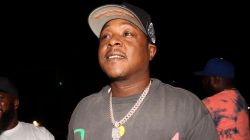



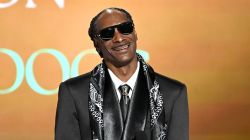




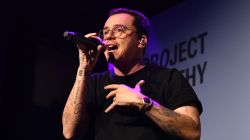
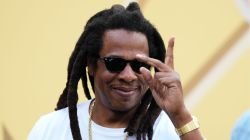
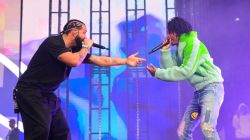

Marco Polo has recorded a full album with polish rapper O.S.T.R – “Kartagina”. It will be released in february 2014.
Here is the first single – “Side Effects”:
http://www.youtube.com/watch?v=DFGR-jGXxR0
Wow that’s a dope track!
Top 15 producer that will never get the credit he deserves. Good chops, cracking snares, good arrangements. Marco Polo is the humble dude that is hard to hate. Given the resources, that rhythm roulette beat was nice.
he dope
Who the fuck is this ninja LMAO
Wow! A musician who actually uses live instruments! Alert the presses! Somebody needs to do a story on this!
easily one of the best producers now. dont sleep niggaz
MARCO POLO is dope but he wants to work with DRAKE? FUCK NO!!!